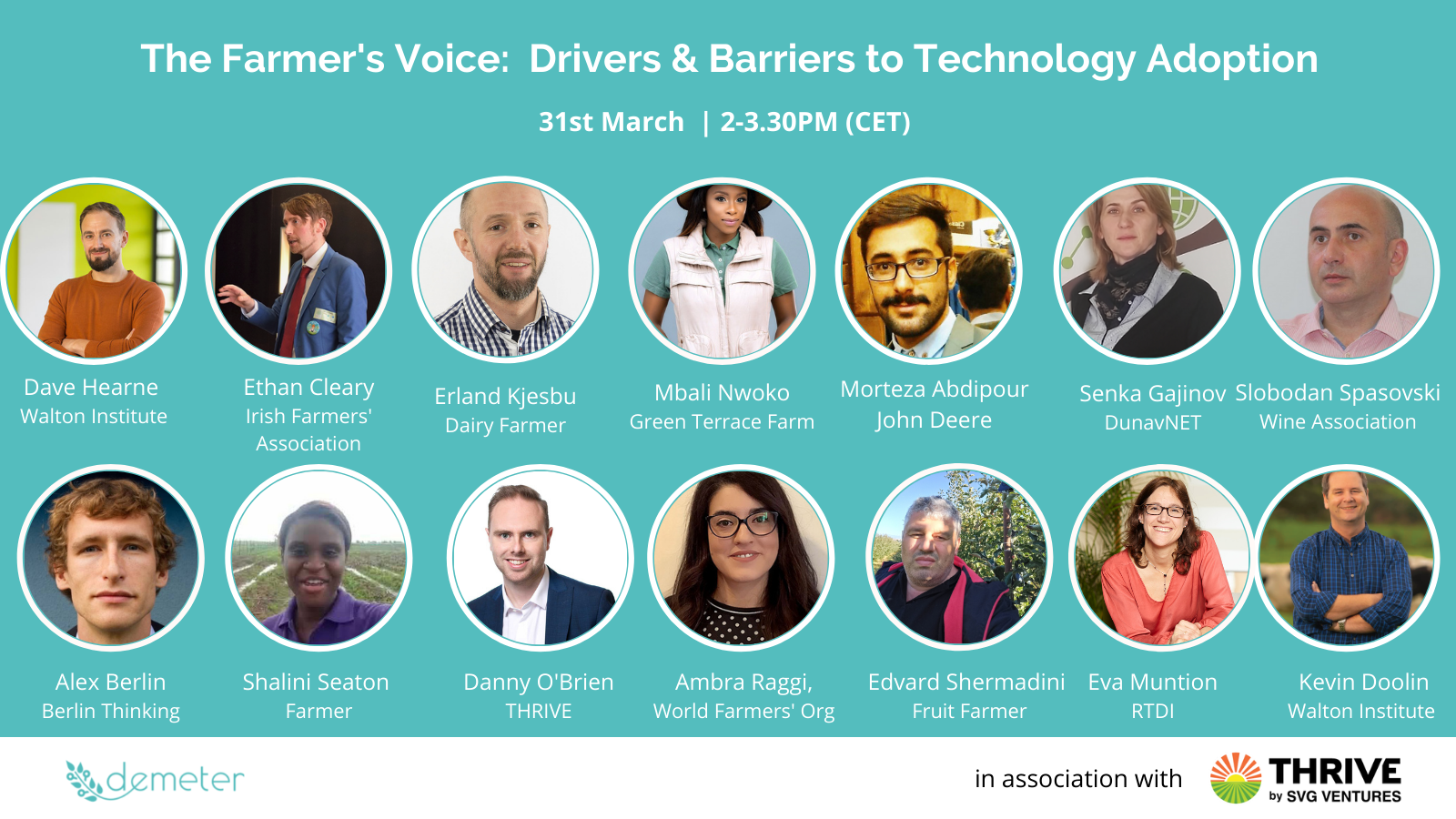On March 31, DEMETER in association with SVG Ventures | THRIVE organized an online event titled ‘The Farmer’s Voice: Discussing Drivers and Barriers to Technology Adoption’.
The webinar focused on the results of the recent DEMETER survey which aimed to better understand farmers’ needs, interests and concerns regarding the adoption and use of Smart Farming Technologies.
An exciting panel of farmers, technology providers and experts brought to the table the key issues which encourage and/or prevent farmers from adopting innovative technologies on their farms.
Ambra Raggi, WFO Policy Officer, joined the webinar to bring our members’ perspective into the debate.
She started by highlighting that WFO members have recognised that R&I in agriculture is key to sustainable food systems, but farmers need an enabling environment to access and adopt smart technologies in their daily work: they need education and skills, but also infrastructures and technical support.
Nono Sekhoto, a South African farmer from African Farmers’ Association of South Africa (AFASA), CEO of GrowthShoot, and member of WFO Women Committee and WFO Gymnasium Alumni, together with Shalini Seaton, from the WFO member organisation The Jamaica Network of Rural Women Producers and student of the second edition of the WFO Gymnasium project – underlined that for young farmers, women farmers and small-holder farmers one of the main problems with accessing & using technology is its cost: “we’re young, coming into the business & there are not many banks or institutions who want to support the agriculture sector” said Shalini.
That matches with what emerged from the survey: about 44% of the farmers believe that the cost of precision agriculture solutions is too high. Also, 19% mention a lack of financial resources as a barrier.
How do we overcome the barriers farmers face when trying to adopt innovative technologies on their farms?
As the WFO Policy Offer said, “one-size fits all approach won’t work in agriculture but too often farmers are not involved in the strategic planning of innovation. They are often treated as beneficiaries or end users”.
That is why at WFO we advocate for a shift from a farmer-responsive approach to a farmer-driven approach to bridge the gap between what happens on the field and the solutions developed at national and international levels.
In this regard farmers’ organisations play a crucial role as key actors to reach the last mile and involve in this process farmers even in the most uttermost rural areas.
